by Rabbi Jeffrey Adler
Ezekiel had a very difficult task: to deliver the messages of Adonai against a backdrop of darkness and divine judgement. He, like the other prophets, was a true patriot, wanting to give a proclamation of good news; yet, to do so would have been in defiance of the Lord Who had called him to be His spokesman.
The opening of chapter 37’s message appeared to be more of the same: “The hand of Adonai was upon me. The Ruach Adonai carried me out and set me down in the middle of the valley. It was full of bones. He led me all around them. Behold, there were very many on the floor of the valley. Behold, they were very dry.”
We are not told what valley the prophet was seeing. It might have been the Valley of Jehoshaphat, the scene of many acts and images of God’s judgements. Nearby was the Valley of Ben Hinnom, where the trash was constantly burning; its constant belching smoke and flames gave the image of Hell and even helped provide one of the major names for Hell. It also might have been the Valley of Har Megiddo, later rendered in Revelation as Harmageddon (Armageddon) site of the last great battle of Revelation. Or, it could have been any one of number of valleys of Elohim’s choosing. The important point is that the prophet found it to be full of bones, filled with the evidence of death and destruction. Adonai caused Ezekiel to walk “saviv saviv”, “round and round”, as in the aftermath of any disaster, looking for survivors, for any sign of life. There were none. Death was all around him. Hope was totally absent. I am certain that the prophet realized that what he was seeing was the long-prophesied judgements about which God had warned since the days of Moses. Israel seemed to be finished, a promising experiment that had failed and descended into the morass of human failure. There were no signs of remaining life, of hope, of a future.
Against this dim backdrop, Adonai asks what seems to be a silly question: “Son of man, can these bones live?” Actually, while this is an understandable rendering of the text, bearing in mind the situation, no verb “to be able” occurs in the text. The text actually states the verb as “hatichyeynnah?”. The letter “he” functions as the interrogative. “Tichyeynnah” is the imperfect tense of “chayah”, “to live”. Adonai challenges the prophet with whether there is any life or potential for life in these extremely dry, dead, bones. Ezekiel is now presented with a great dilemma. There are the facts; death is all around, and the history of Israel and Judah was filled with rebellion against Elohim and the words of His prophets. Yet, how can one who has experienced so many indications of the supernatural and revelation of the glory and power of God say that He could not raise these people to life again. So, the prophet responds with, “Adonai Elohim, You know.” “Y’data” is the perfect tense of “Yada”, referencing a knowledge that is more than of cognitive data, but, intimate knowledge. This is the verb used frequently to describe sexual intimacy, experience. The perfect tense sees the action as one point on a timeline, very intense. The impact is that, despite the seemingly hopeless appearance of the circumstances, allowance is left for divine intervention, the miraculous.
Ezekiel is now instructed to prophesy over the dry bones. The verb “to prophesy” in the Biblical text occurs in the niphal stem, the passive voice. The implication is clear; Ezekiel, though a patriotic lover of his people wanting to state good news, is not the source of the message. The prophecy is the result of God’s acting on him. Therein is the message’s authority.
“Say to them, dry bones, hear the word of Adonai (d’var Adonai). This is always the antidote to disaster. Thus says Adonai Elohim to these bones. Behold, I will cause Ruach (Spirit, breath, wind) to enter you, so you will live.” “Chayitem” is again the perfect tense, making it very decisive. “I will attach tendons to you, bring flesh on you and cover you with skin. Then I will put breath in you. You will live.” Then comes the main point: You will know (again, “y’datem, the perfect tense of ‘yada”) that I am Adonai.” God wants His precious Jewish people to know Him experientially as well as cognitively and theologically.
“So I prophesied just as I was commanded. As I prophesied, there was a noise (or voice), and behold, an earthquake. Then the bones came together, bone to its bone. I saw, and behold, there were tendons on them, flesh came up and skin covered them above, but there was no breath in them.” Scattered bones flew across the valley and joined together, giving form and the beginnings of identity. Still, there was no actual life, as there can be no life without spirit.
In our next session, we will see the rest and best of the story.
Rabbi Jeffrey Adler is president of the Board of HaShomer and also Rabbi of Sha’arey Yeshua in Indianapolis, IN.
